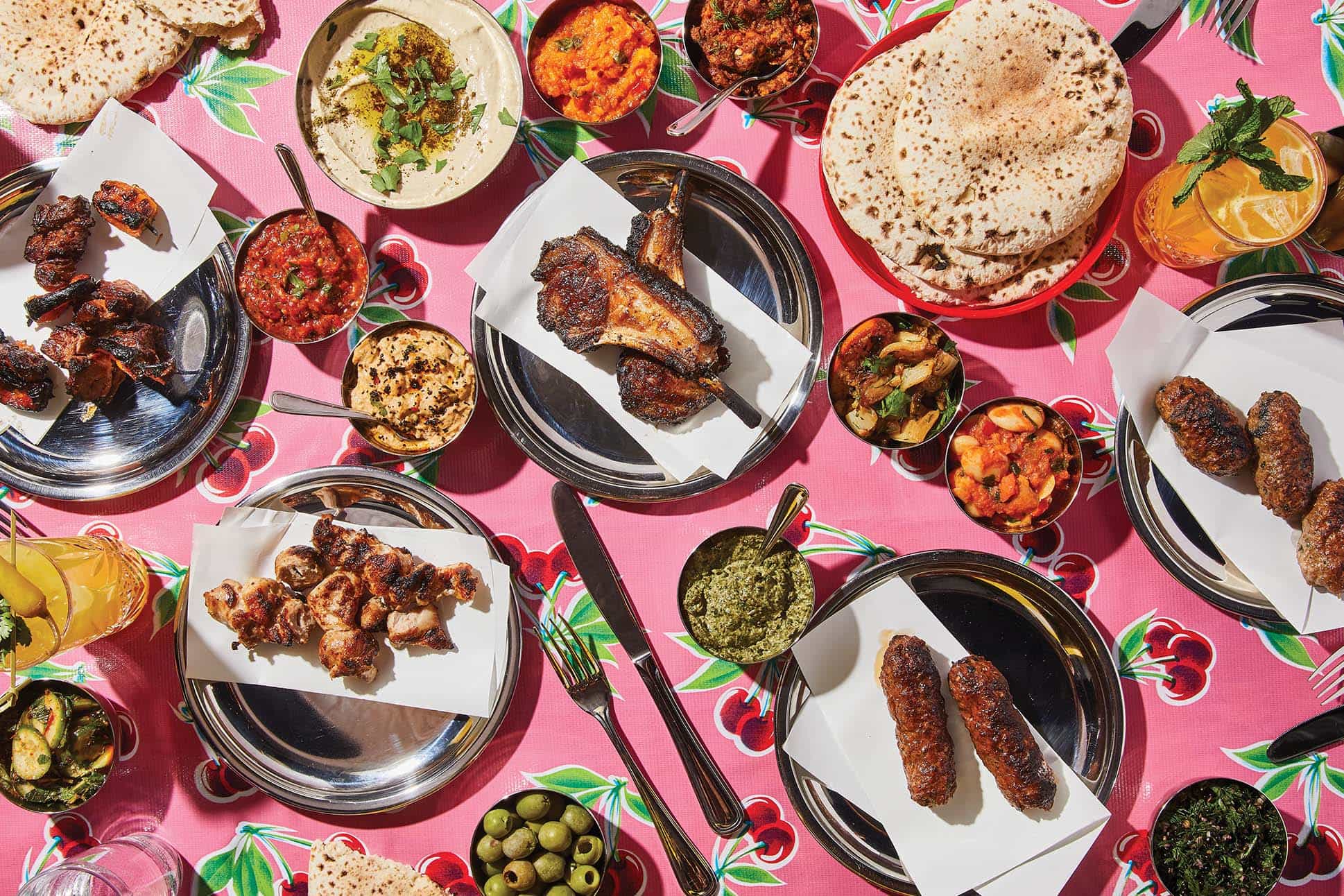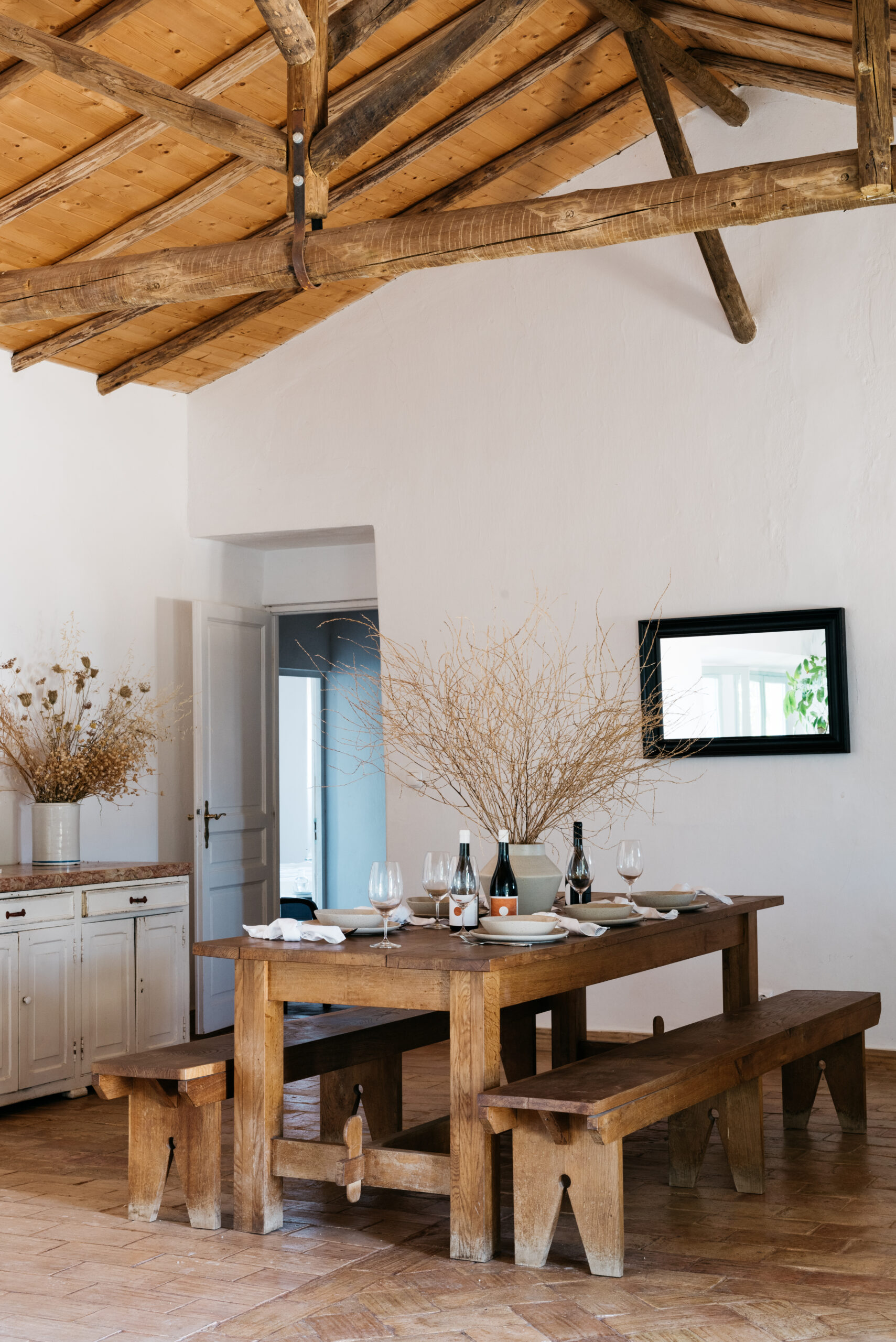By Adam Erace
Images by Michael Persico
Marigold Kitchen’s backyard ran up to its rear neighbor’s garage, and over the summer of 2007, Steve Cook and Mike Solomonov would sit on its roof, blow cigarette smoke into the sticky West Philly atmosphere and sketch out the bones of what would become the city’s most celebrated restaurant.
“We had plenty of time since nobody came and ate there on the weekdays,” Solomonov remembers with a wry laugh. Despite the acclaim falling at this avant-garde BYOB’s doorstep like the overripe apricots and plums heavy on the neighborhood’s ancient trees, “we were doing seven covers on a Tuesday, and whatever Steve was paying me was probably a hundred percent more than he could afford.”
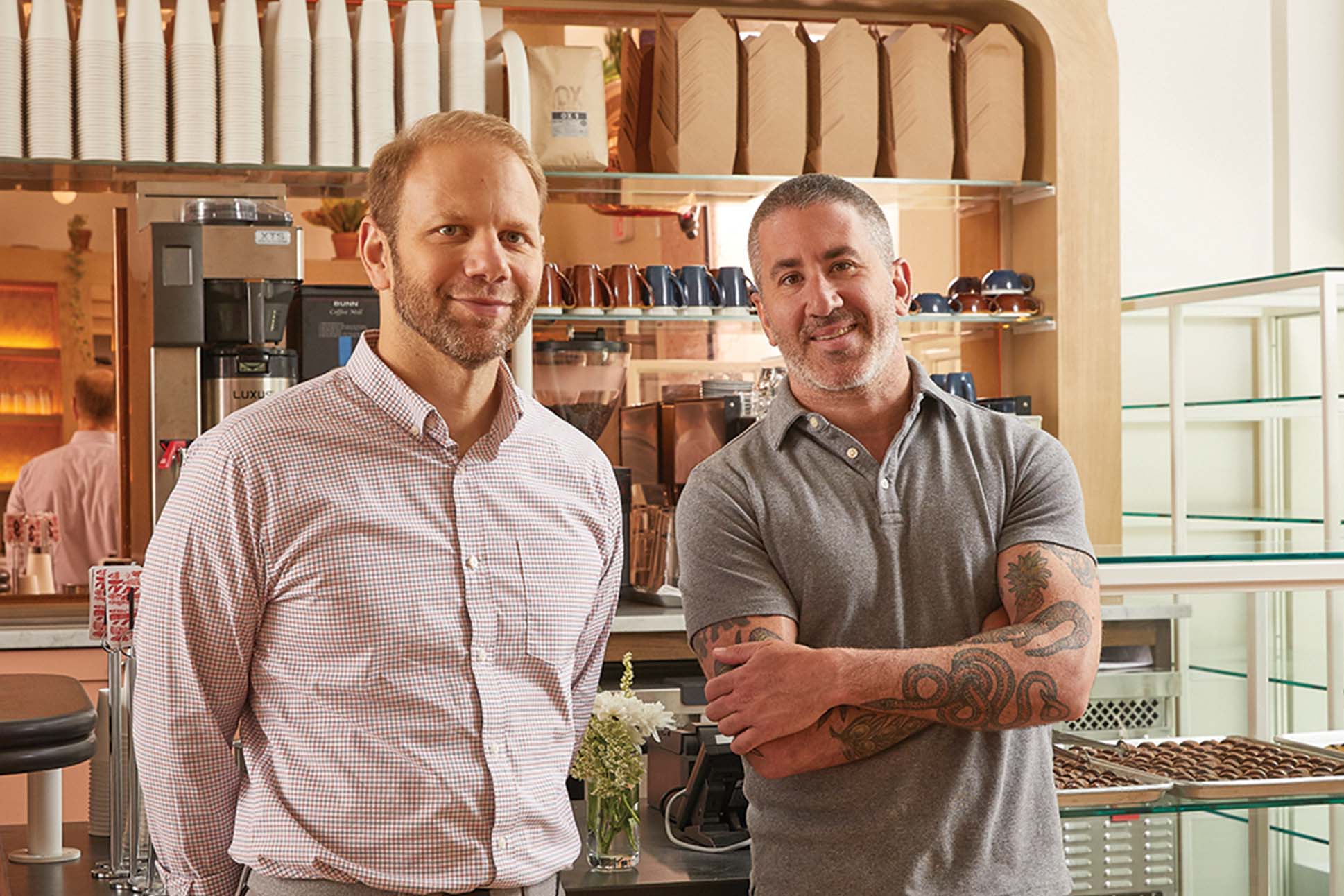
Working opposite hours of his wife, Shira, a teacher, and making little money, Cook burned out of being a chef-owner not long after opening Marigold in 2004. “It was the hardest year of work I ever had,” he says. “In addition to being very stressful, it was very lonely.” He’d heard about Solomonov, an acquaintance of Shira’s from their childhoods in Pittsburgh, and brought him in to run the kitchen. He wasn’t looking for a wunderkind to propel Marigold to the next level but a warm body, a somebody “capable of running this business while I could take time to figure out what I wanted to do,” he says. “Somebody that I, frankly, didn’t need to manage.”
Cook wasn’t looking for a future business partner and best friend either and for a while, he avoided the restaurant. When he did return, he found his office tornado-ed with unpaid invoices, but instead of the mess compounding his stress, it gave him a sense of direction. The Wharton business grad thought, “I actually know how to do this stuff; I can understand this side of it.” It was his way back in—through chaos, order. “That’s how I became the business guy,” the left brain to Solonomov’s right, and together they settled into a professional rhythm and personal relationship shaped by their shared Jewish heritage and ideas about food. “I don’t think it took very long for us to develop a relationship that seemed like it had more of a future than just Marigold.”
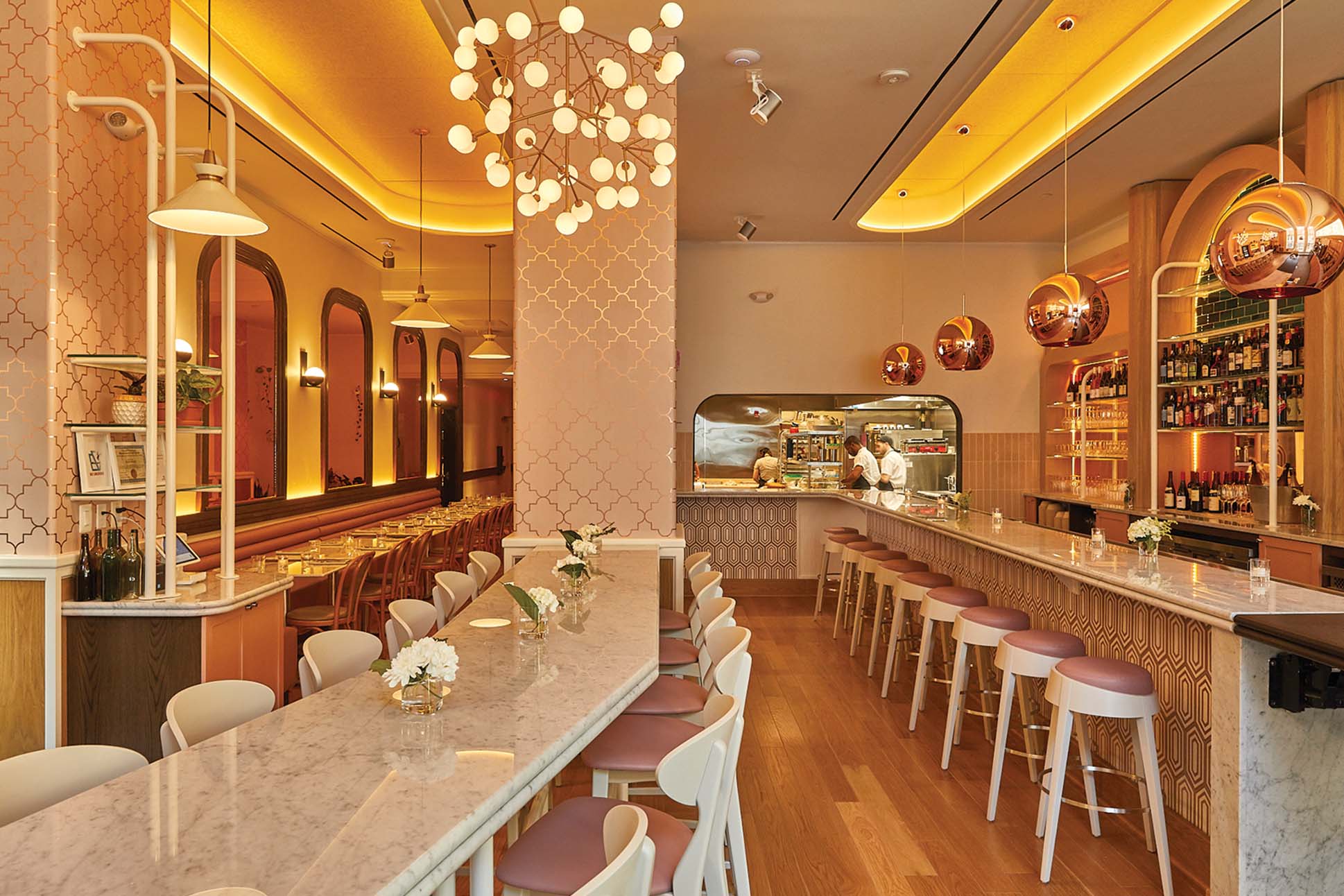

The future, “it was just sort of there,” Solomonov says, “hanging over our heads.” Like the smoke and the fruit-laden branches above those weeknight summer brainstorms, during which Zahav—and the duo’s restaurant group, CookNSolo—was born.
The hummus was smooth as buttercream. Its obscene ratio of tahini to chickpeas gave it depth and presence, a sun orbited by little bowls of dazzling vegetable meze. It came with a steaming disc of laffa, a little-known Iraqi flatbread, freckled with za’atar, a little-known Levantine spice. It was 2008. Solomonov and Cook had just opened Zahav in Society Hill, and the notion of Israeli cuisine was not a thing in the American restaurant industry. The hummus, people understood. The rest of the menu took a minute.
“Zahav definitely didn’t hit right away,” Cook says. “We had put literally everything we had into the restaurant, so there was no reservoir of capital for an extended ramp-up period. Mike’s dad cut us a check for ten grand because we were probably within one [period] of not being able to make payroll.”
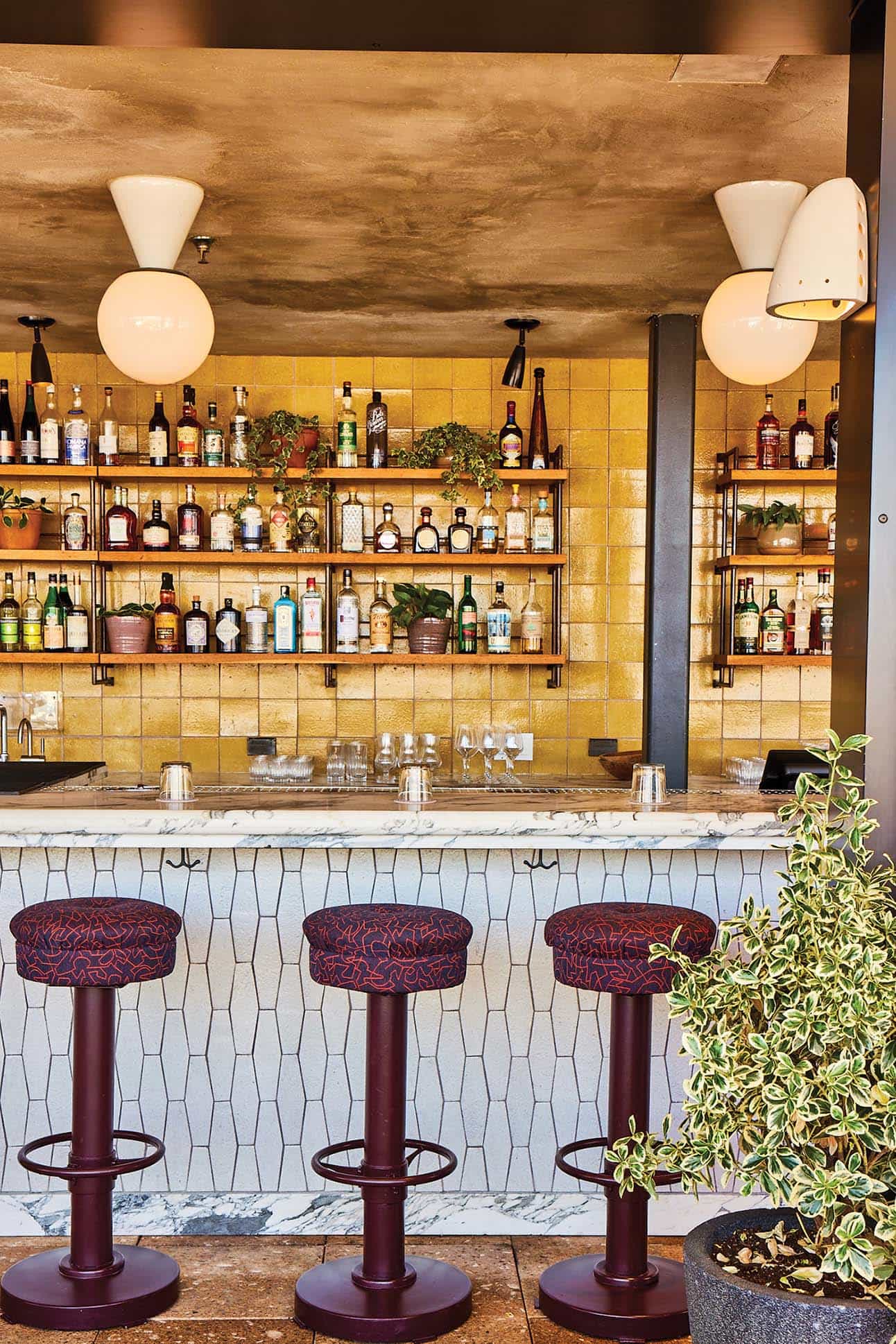
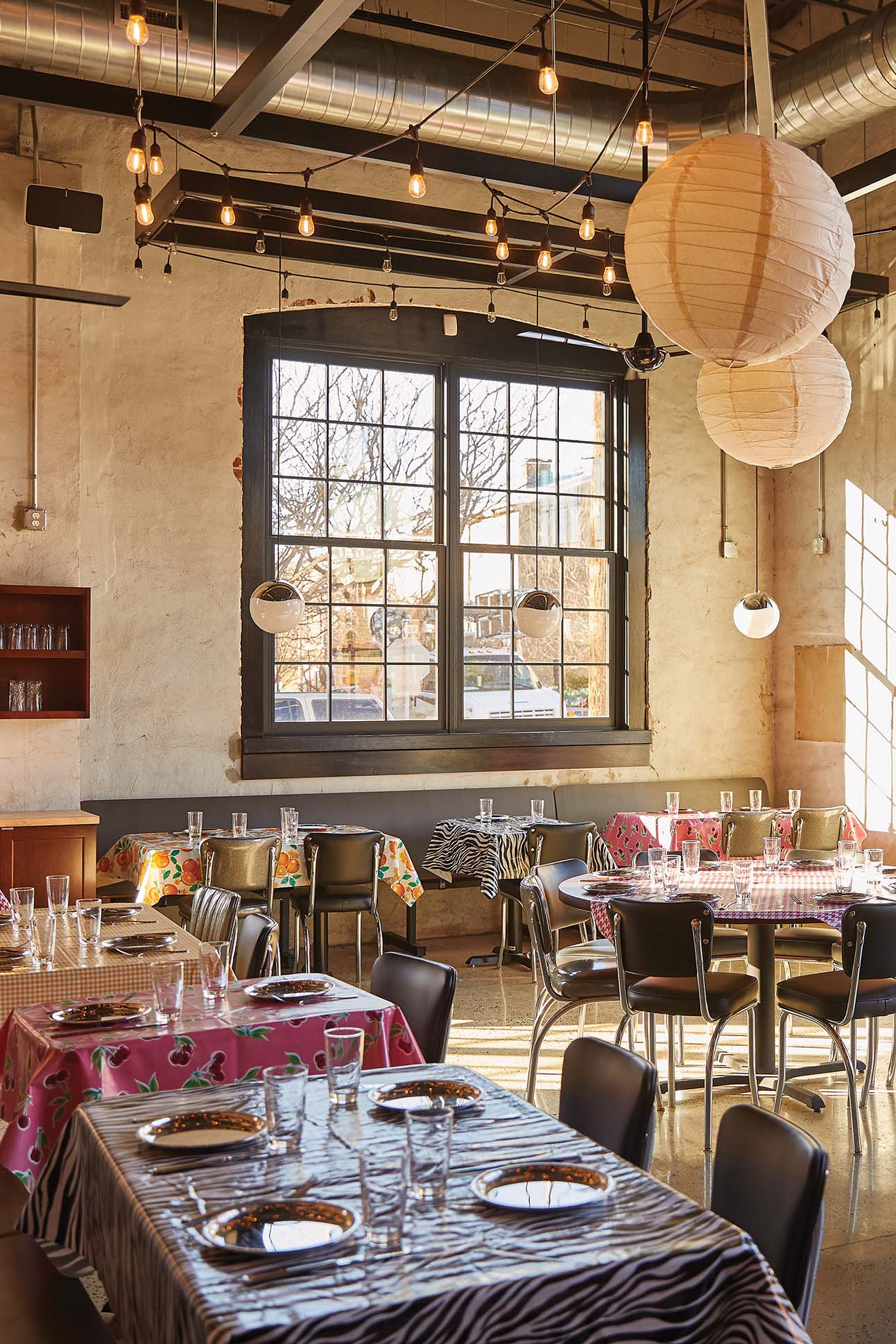
“That was a horrible feeling,” Solomonov says. “There was so much going on in my personal life, too. I was struggling with addiction, and everything was falling apart,” while Zahav, a 100-seat sandstone-hued dining room, was serving less than 20 guests on weeknights. He and Cook gave it six months. Fortunately, that’s when Solomonov got sober and when the press started to roll in, local at first, then national within the year, along with a James Beard Rising Star nomination for Solomonov. The dining public’s passion for the hummus never dimmed, but new stars emerged—the coal-kissed duck hearts, the salty halloumi with candy-sweet dates, the smoked and braised lamb shoulder lacquered in pomegranate molasses—and formed a constellation that made Zahav the center of Philly’s culinary universe.
They never had to cash that check.
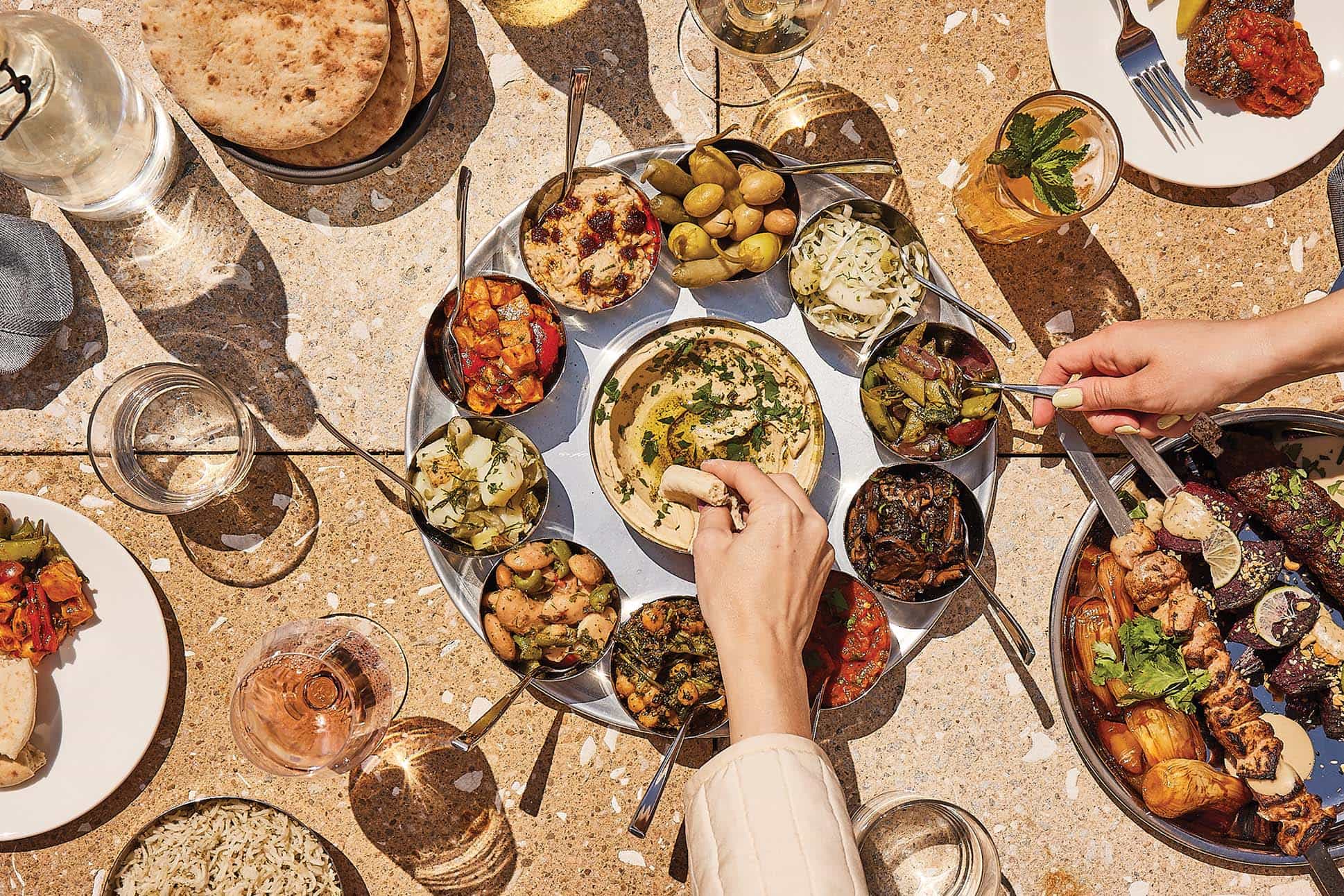
If the story of Cook and Solomonov were a movie, it would be time for the montage: the tuxedoed duo at the Beard Awards, bringing home Best Chef Mid-Atlantic (2011), Outstanding Chef (2017) and Outstanding Restaurant (2019); Solomonov roaming Tel Aviv and Galilee for the PBS documentary The Search for Israeli Cuisine; cookbook pages running furiously off the printer; new restaurants opening (Federal Donuts, Dizengoff, Abe Fisher, Golide, Merkaz, K’Far, Laser Wolf), others sold off, others closed altogether; the gang expanding to (then retreating from) Miami and conquering New York.
Producers would overlay this flurry of activity with the Cam’ron and TLC tracks that made Zahav feel like a Millennial prom party and intersperse them with lingering slo-mos of Solomonov at the bread station, pressing his fingers into the pliable laffa dough. His first food job was at a bakery in Israel. Making bread at Zahav is a meditation and a spiritual link, to his time abroad and to his brother, David, who was killed during his Israeli military service in 2003, three days shy of being discharged.
“This food represents the blood, sweat and tears of actual people, and it represents a culture a lot of people can identify with,” Cook says. “This concept was not created in a corporate boardroom.” It was created on the hot roof of a garage in West Philadelphia.
Solomonov remembers one of their early business plans for Zahav. To court investors, Cook wrote a line that 16 years later feels prescient: Israeli food will be the next big thing, the next food trend. “He was completely full of it,” Solomonov laughs, “but it actually turned out.”

